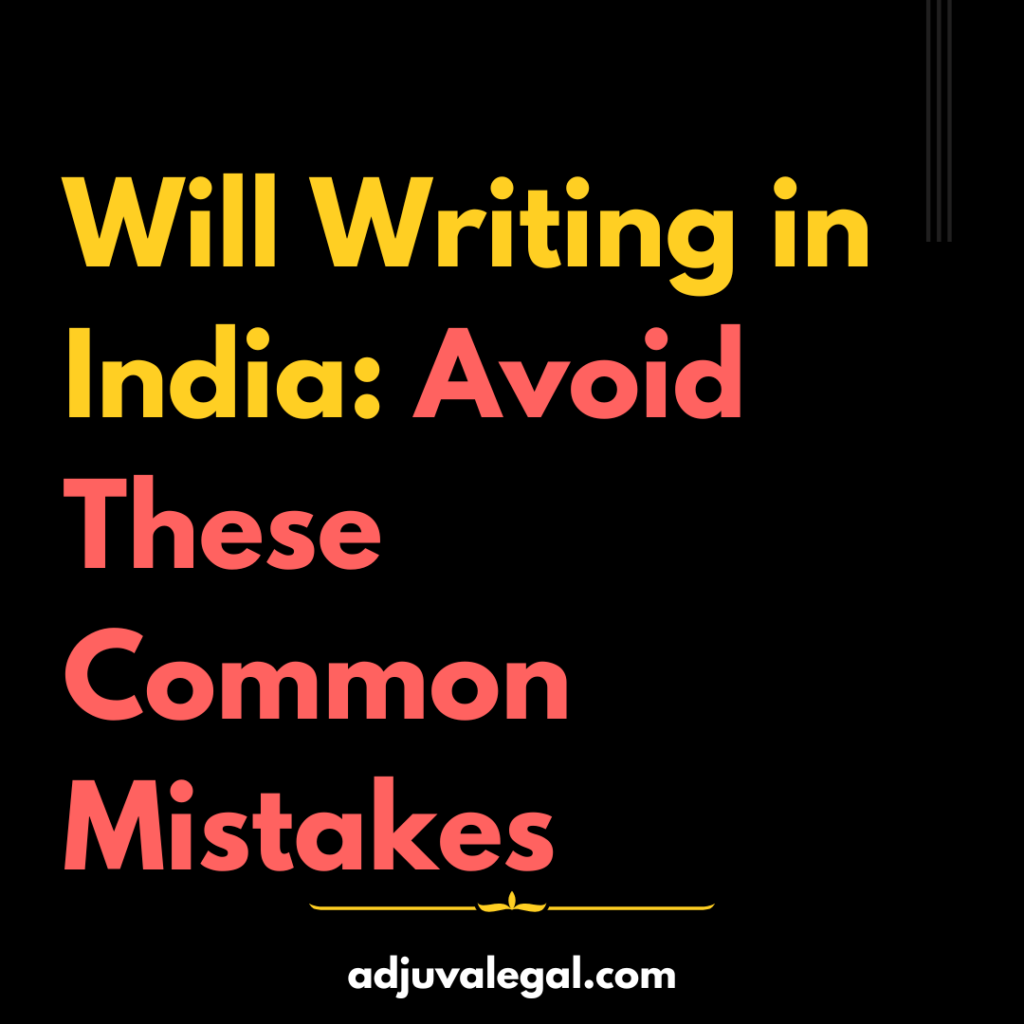Writing a will might seem like a daunting task, but it’s a crucial step in ensuring your assets are distributed according to your wishes after you’re gone.
Unfortunately, many people make common mistakes when drafting their wills, which can lead to legal complications and unintended consequences.
In this guide, we’ll delve into these common errors and provide practical tips to help you create a legally sound and effective will.
Why is a Will Important?
A will is a legal document that outlines how you want your assets to be distributed after your death.
Without a valid will, your assets may be distributed according to the laws of intestacy, which may not align with your wishes.
This can lead to family disputes, legal battles, and unnecessary stress for your loved ones.

Common Mistakes and How to Avoid Them
- DIY Wills: A Risky Proposition
- Ambiguous Language and Vague Terms
- Outdated or Inconsistent Information
- Lack of Witness Signatures
- Ignoring Digital Assets
1. DIY Wills: A Risky Proposition
- The DIY Trap: Many people attempt to draft their wills using online templates or generic forms. While this may seem convenient, it’s often a risky approach.
- Legal Nuances: Indian laws governing inheritance are complex and subject to change. A DIY will not adhere to the latest legal requirements, leading to its invalidation.
- Professional Help: Consult a willing expert, like Adjuva Legal, to ensure your will is legally sound and tailored to your specific needs.
2. Ambiguous Language and Vague Terms
- Clarity is Key: Avoid using vague or ambiguous language in your will. Terms like “my belongings” or “a significant portion” can lead to disputes among beneficiaries.
- Specific Details: Be specific about the assets you want to bequeath and the beneficiaries you want to receive them.
- Legal Jargon: While it’s tempting to use legal jargon, it’s best to keep your will simple and easy to understand.
3. Outdated or Inconsistent Information
- Regular Review: Review your will periodically to ensure it reflects your current wishes and assets.
- Update Beneficiaries: If you’ve added new beneficiaries or changed existing ones, update your will accordingly.
- Asset Changes: If you’ve acquired new assets or sold existing ones, modify your will to reflect these changes.
4. Lack of Witness Signatures
- Legal Requirement: In India, a will must be signed by two witnesses who are not beneficiaries.
- Witness Credentials: Ensure your witnesses are competent and understand the significance of their signatures.
- Proper Execution: Adhere to the specific formalities required for executing a will in your state.
5. Ignoring Digital Assets
- The Digital Age: In today’s digital world, many people have significant digital assets, such as social media accounts, online banking, and cryptocurrency.
- Digital Will: Consider creating a separate digital will to outline your wishes for your digital assets.
- Legal Recognition: While digital wills are not yet legally recognized in India, it’s a good practice to document your intentions.

Additional Tips for a Strong Will
- Appoint an Executor: Choose a reliable executor to oversee the distribution of your assets.
- Consider a Trust: If you have complex estate planning needs, consider setting up a trust.
- Consult a Tax Professional: Understand the tax implications of your will and estate planning decisions.
- Store Your Will Safely: Keep your original will in a secure location, such as a bank vault or will copies with your lawyer.
Conclusion
By avoiding these common mistakes and following the tips outlined in this guide, you can create a legally sound and effective will.
Remember, a well-drafted will can provide peace of mind for you and your loved ones.
By taking the time to draft a comprehensive and legally sound will, you can ensure that your assets are distributed according to your wishes, providing peace of mind for you and your loved ones.
Don't let a poorly drafted will jeopardise your legacy.
Make a will with the help of Adjuva Legal
Author
Utkarsh Srivastava, founder of award-winning Adjuva Legal, is a renowned divorce consultant with vast experience serving clients globally, particularly in India. He’s a Harvard-trained professional committed to providing high-quality, affordable legal services, exemplified by his pioneering Free Legal Aid Program in India.







